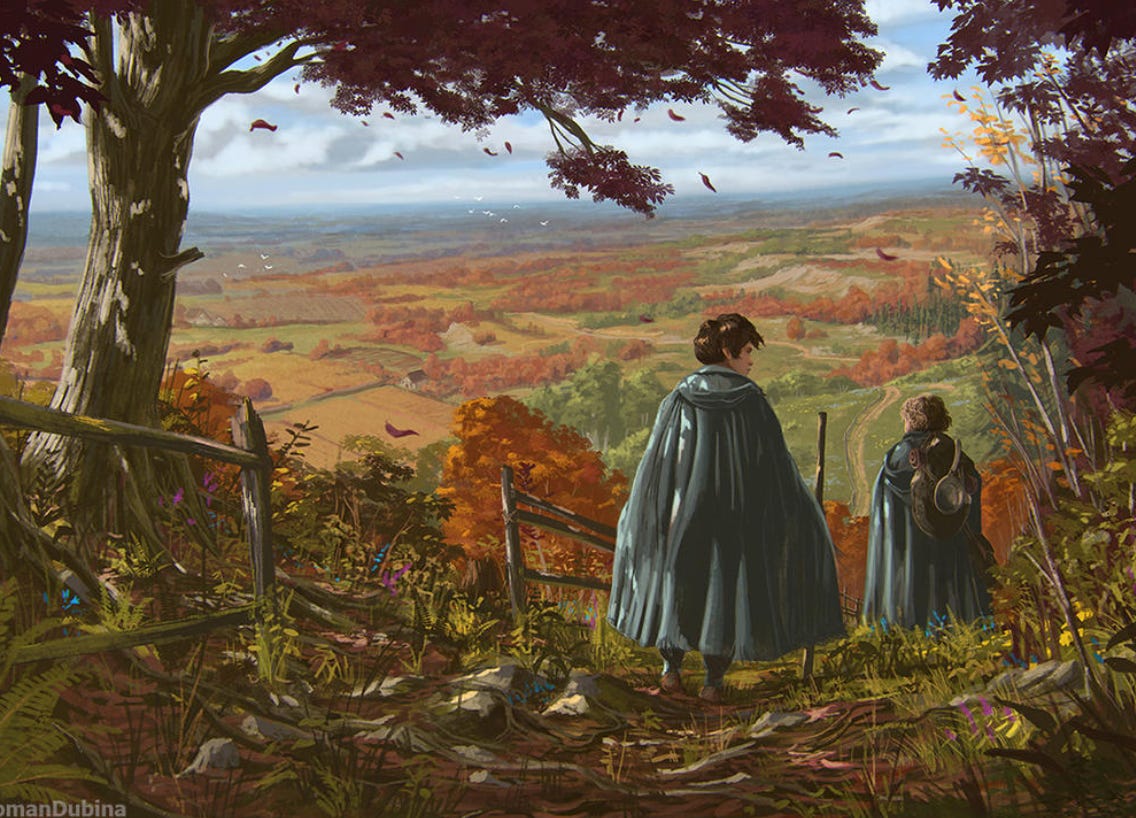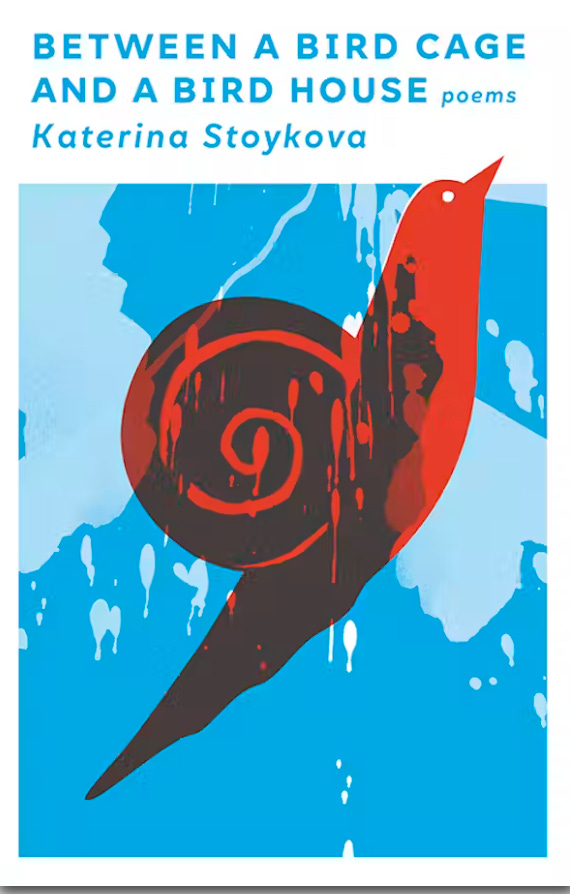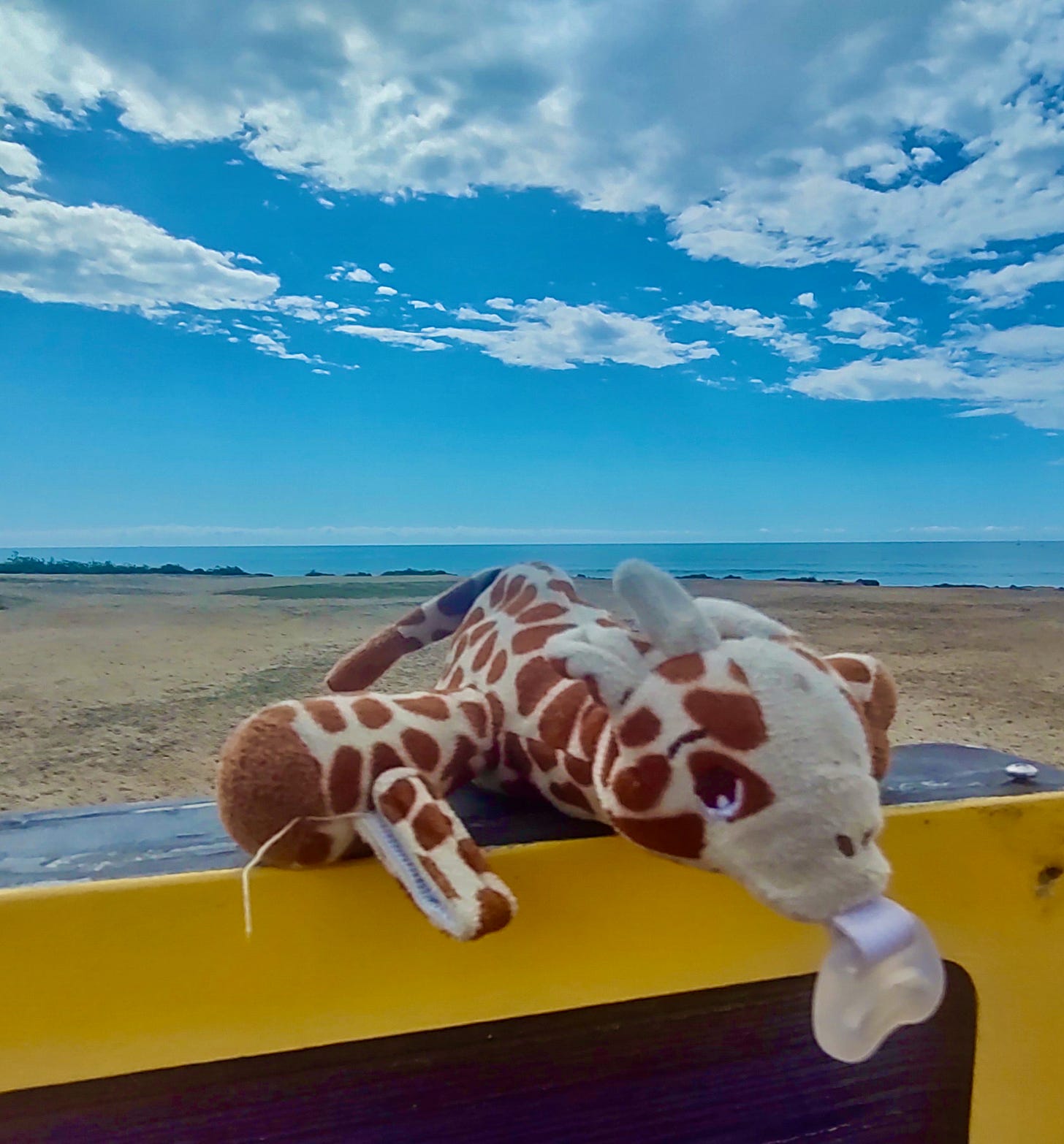Those who go, those who stay
What is gained or lost when we leave or remain in the place we call home?
Before we begin…
Do we become someone else when we leave a place? Or will the place we lived and grew up always be a part of who we are? And what happens if the place we are “from” no longer fits when we return?
Welcome! You’ve reached Spark. Learn more here or just read on. If you received this from a friend, please join us by subscribing. It’s free! All you have to do is press the button below. If you have already subscribed, welcome back! If you see something you like, please hit that heart so others can find us more easily. And if this email is truncated in your inbox, just click the headline above to come on through and read everything all at once.
The pull of home

For the past couple of years the topic of an essay has lived in the google drive files where all my Spark posts take their first steps. The subject line: “Those who go, those who stay.” Some of you will recognize one inspiration for this title from Elena Ferrante’s third novel in her My Brilliant Friend quartet, Those Who Leave and Those Who Stay.
The title of my otherwise empty document leapt out at me this week in a very insistent way. I’m still raw from my last visit east to the town where I grew up. I’m still playing movies of when I was younger and struggling to make decisions that I was convinced would shape the rest of my life. I’m thinking of my siblings and step-siblings. Although all 11 of us left home between the ages of 17 and 19 and most traveled or lived far away for a few years, all but four returned to New England where they live within 100 miles of the New Hampshire town we all called home. I am one of the four who still lives “away.”
I didn’t go far at first, just a few hours away for school and then my first job. Later, I edged further south and left New England for New Jersey. Still, it was easy enough to go back “home” for visits with my son. When I fell in love with a man from Southern California, the notion of moving there took hold. He was not happy in the Northeast (and honestly, given his frequent and loud complaints about the weather, general incompetence of those who ran the state of New Jersey, and unkind comparisons with the Golden State, it’s safe to say the Northeast was not happy with him).
It took several years for the “notion” of moving west to become reality. I needed to be convinced. I had friends nearby. I could be in New Hampshire in eight hours by car. I didn’t always like where I was but it was familiar. In my mid-to-late forties, I still possessed, however, the curiosity and energy I’d felt when I was 17 and leaving home the first time. I was ready for a new chapter for all kinds of reasons and I was in love with someone I both liked and trusted. The more time we spent in California, the more the place grew on me. I told myself I would be able to fly east often. Our doors would always be open to visitors. We moved in 2002.
I love living in San Diego. I have loved it from the moment we arrived in a car so packed with our belongings that there was barely room for us. I love the friends I’ve made, the natural beauty, and, yes, the damn weather. It was here that I began to write in earnest. My new hometown found its way into my first novel. I was one of many transplants who re-root here and the place has become part of me.
I am reckoning now with the losses that came with that decision – the distance from family which feels so much greater at times of sickness or trouble, the connections with friends that have weakened in the absence of proximity, and the sheer longing at times for New Hampshire. The smells, the snow, the mountains, the smallness of the towns – all the things that my 17-year-old self longed to escape now draw me. I am also reckoning with how “home” does not feel like home anymore and may never feel that way again.
There are all kinds of reasons people have for choosing to stay or go — ranging from the need for shelter, food, and safety to the desire for economic opportunity, or growth. These reasons may color how we view the place(s) we choose and the pull our homes have on us.
These thoughts led me to read a collection of poems by Katerina Stoykova, Between A Bird Cage and a Bird House, recommended a while ago by Spark author and poet Andrew Merton who found himself thinking about the pull places have on us long after we’ve left them.
In her poems, Stoykova explores, among other themes, the pull between her original home in Bulgaria, where she frequently returns, and her adopted home, the U.S., where she moved in her early twenties. In this one, she captures the sense of lightness and possibility that comes with leaving home even if it means leaving a part of ourselves behind.
Light without her body,
the snakeskin travels anywhere The wind wants. Having lost the glove of home, Free to grow at last, The body moves on. You know how it goes — Becoming someone else By leaving something behind. - Katerina Stoykova
Then there is the difficulty that comes with returning to a place that was once home. Again, Katerina Stoykova:
Visit
I visit my homeland the way a snail tries To fit back into his old shell. Day after day I writhe inside, Counterclockwise. The shell is rough and narrow, opens sores On coddled parts. But I persist, eat tarator, cry over graves, Until I conform to my old contours. Finally, I am here. Snail is the most beautiful Bulgarian word Says my son who is studying the language. I thought it meant love. - Katerina Stoykova
What about you?
If you’ve remained in or close to the place where you grew up, what have you gained or lost by staying? If you’ve moved from the place you think of as home, what have you gained or lost in the move? How has place shaped your identity or affected your contentment with where you are now?
Stats and stories
The statistics tell us that people tend to stay put both here in the U.S. and throughout the world. The U.S. Census bureau indicates nearly 60% of young people live within ten miles of where they grew up while 80% live within 100 miles of where they grew up. Worldwide, less than 4% of people lived outside their country of birth in 2020.
But it doesn’t take a move across continents to alter the sense of identity we have from the place where we grew up. Andrew Merton who recommended Stoykova’s book to me, has lived in New England for over sixty years but still feels like the New Yorker he was for his first eighteen years. He says, “I have lived in suburban/rural New England for the past 61 years—by-and-large a fulfilling and satisfying life—but damn! I was born in Greenwich Village, and lived there and on Long Island for my first 18 years, and part of me will always be a New Yorker.”
A family story about leaving once, and then again
All four of my husband’s grandparents left Italy for the United States in the 1800s/early 1900s. All wound up in Providence, Rhode Island where my husband was born. None of his relatives returned to Italy but one grandfather, after years of establishing a successful business and raising a family of five, decided to leave again, this time for California. For him, it was not only a way to settle in a place that was more like his home in Italy, it was a new start for the sons and daughter who returned damaged in ways visible and invisible by the war.
He told them nothing of his plan. He took a road trip with his youngest son and widowed, pregnant daughter to Burbank. He bought a jewelry store and a house. Upon his return he announced they would all be moving west. And they did. The move, my husband said, gave his father, mother, uncles, and aunt new chapters after a long siege of loss. There was opportunity. He was only five at the time and most of the events that formed him took place on the West Coast. He has never felt compelled to return to the east or visit much. California is his home.
Those Who Leave and Those Who Stay by Elena Ferrante
The third novel in Ferrante’s quartet about a friendship between two women captures the fractures that result individually and in the relationship when one tries to escape the gravitational pull of the Neapolitan neighborhood where they grew up. You can also watch it on HBO.
Welcome New Subscribers!
If you’ve just subscribed, thank you so much for being here. If you would like to check out past issues, here’s a quick link to the archives. Be sure to check out our Resources for Readers and Writers too where you will find links for readers, book clubs, writers, and writing groups. And if you’d like to browse for your next read, don’t forget to check out books by authors in our community at the Spark Author Page which will be updated with new names and books for next week’s issue. Another great source: the many wonderful reviews you’ll find among the #Bookstackers.
The more the merrier! Please share with your friends and invite them to join us!
That’s it for this week. Let me know how you are and what you’re reading. If there’s an idea, book, or question you’d like to see in an upcoming issue of Spark, let us know! Use the comment button below or just hit reply to this email and send your message directly.
And remember, If you like what you see or it resonates with you, please take a minute to click the heart ❤️ below - it helps more folks to find us!
Ciao for now!
Gratefully yours,
Betsy
P.S. And now, your moment of Zen…far from home
Calling for Your Contribution to “Moment of Zen”:
What is YOUR moment of Zen? Send me your photos, a video, a drawing, a song, a poem, or anything with a visual that moved you, thrilled you, calmed you. Or just cracked you up. This feature is wide open for your own personal interpretation.
Come on, go through your photos, your memories or just keep your eyes and ears to the ground and then share. Send your photos/links, etc. to me by replying to this email or simply by sending to: elizabethmarro@substack.com. The main guidelines are probably already obvious: don’t hurt anyone -- don’t send anything that violates the privacy of someone you love or even someone you hate, don’t send anything divisive, or aimed at disparaging others. Our Zen moments are to help us connect, to bond, to learn, to wonder, to share -- to escape the world for a little bit and return refreshed.
I can’t wait to see what you send!
And remember, if you like what you see or it resonates with you, please share Spark with a friend and take a minute to click the heart ❤️ below - it helps more folks to find us!






I too was raised in New Hampshire and couldn’t wait to leave. But every time I see those New Hampshire hills, my heart does a little jump. New Hampshire’s gentle beauty is not in my pantheon of most spectacular places ever, but to me it might as well be the font of all beauty in the world because it shaped my imagination. I will send you a photo.
Something always jumps out when I read you Betsy. E.G. ‘For him, it was not only a way to settle in a place that was more like his home in Italy, it was a new start for the sons and daughter who returned damaged in ways visible and invisible by the war.’ Is such a story too close to home for you to explore? I can hear you telling it now…
Ask me where I am from? and I will say ‘Wembley’ and leave it at that. I expect the world to know where Wembley is. I left there aged 22 and moved 4 miles to Harrow so we could buy our first house. At 25 I moved 115 miles to Birmingham because of work, and at 31 love took me to Mansfield (we are still together). At 35 we moved to Nottingham to be near a railway station, and at 70 we ‘downsized’ to Beeston, two miles from our old house and all of 123 miles from Wembley. Every one of these places fed me history and memories I think of as my own. A bit like you and your husband, I find it difficult to tell my story without telling Susan’s.
For the record four of my closest friends are from my Wembley ‘Young Socialist’ Years. None of us go back. I have one cousin in the borough and my maternal grandfather died in 1976. Just a couple of visits since then. I love everywhere I have lived for different reasons.
It is a rich farrow you plough this week, but then when don’t you? Keep up the good work Betsy.🐰